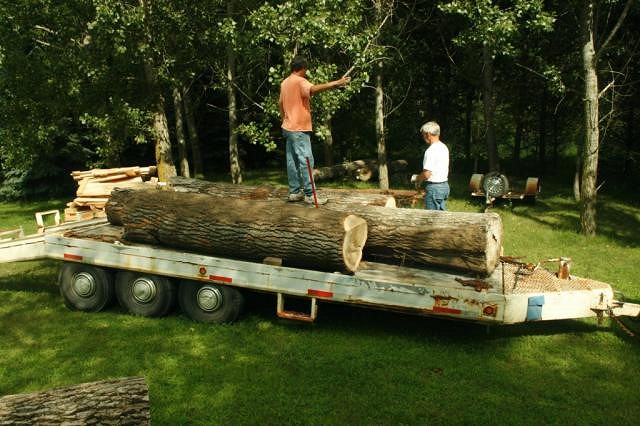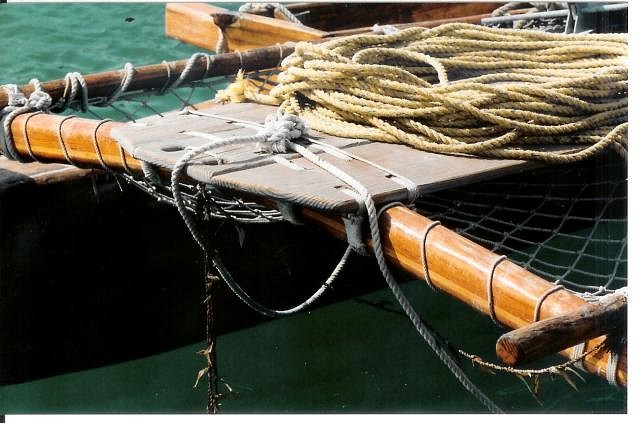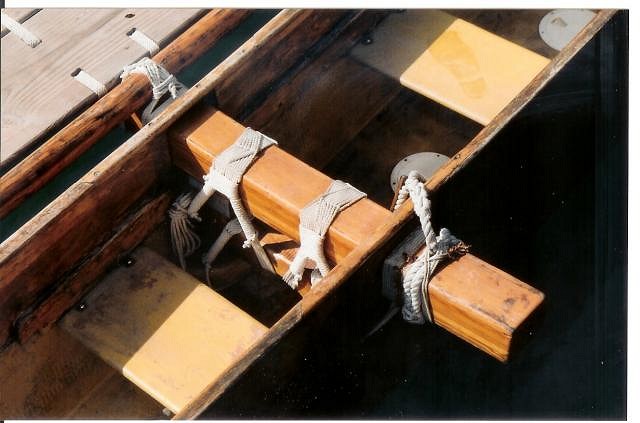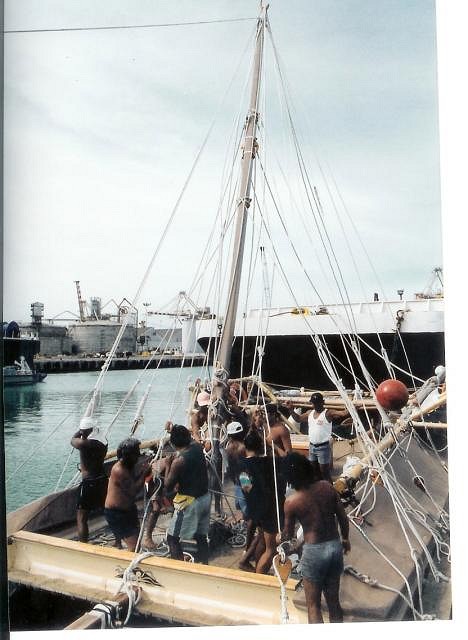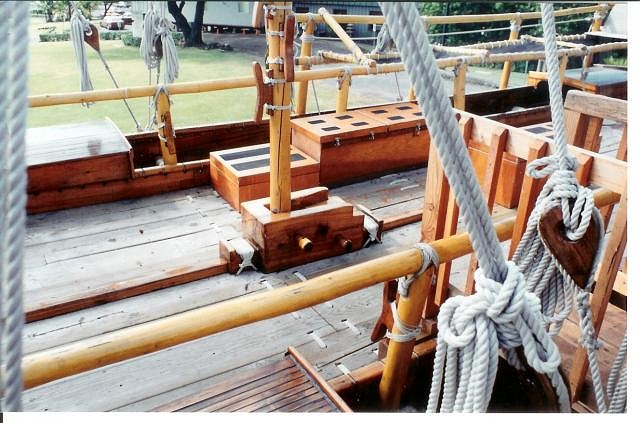|
G
GMAN
Posted
posted
on
Tue, Jan 1, 2008 6:51 PM
I want the one second to the top. You can ship that, right? G$ |
|
LL

Limbo Lizard
Posted
posted
on
Fri, Jan 11, 2008 8:28 AM
I've got the first three verses (to the droning tune of Wreck of the Edmund Fitzgerald). A cottonwood canoe and her tiki-mad crew With a jug of Mai Tais, and a gleam in their eyes The weather was calm, as they started out strong [ Edited by: Limbo Lizard 2008-01-11 08:45 ] [ Edited by: Limbo Lizard 2018-09-09 20:21 ] |
|
V
VampiressRN
Posted
posted
on
Sun, Jan 20, 2008 5:45 PM
Johnny...glad to see the dream is still alive. If you are like me, I have high hopes of getting things done in short periods of time, but that never works out. Usually time, availability and money slow things down. Hang in there...your dream will come true eventually. Wow...those are some big logs!!! :) |
|
T
Toataiaha
Posted
posted
on
Fri, May 30, 2008 3:25 PM
You fellas away to Gilligan's Island , eh mates :D Bloody great idea Johnny . And there are various Waka Hourua projects here in New Zealand cheers me hearties .
[ Edited by: Toataiaha 2008-05-30 21:42 ] |
|
T
teaKEY
Posted
posted
on
Sat, May 31, 2008 9:57 AM
I was thinking about this too, Would be a good Great Lakes Gathering. |
|
J
JohnnyP
Posted
posted
on
Fri, Jul 25, 2008 5:56 PM
Love the song Limbolizard, I should have replied way long ago. After much time, and it does take time to arrange to get the equipment and help together to fetch a log of this size, I was able to get this log to my home. The canoe will be carved out of the one I am standing on (middle one) in the below photo. I think the hardest part of this idea is over, actually getting the log, now just the carving remains (just, ha ha), which can happen little by little over time. The log is shorter than I originally wanted, but had to scale down due the weight of the log, this one weighed well over two tons.
|
|
B
Benzart
Posted
posted
on
Sun, Jul 27, 2008 2:58 AM
How Awesome to Finally get the logs home! After spending an hour going over Jock's links I'm ready to set sail! I'll be watching this canoe dilligently, waiting for the launch. |
|
LL

Limbo Lizard
Posted
posted
on
Wed, Aug 6, 2008 11:23 AM
Seems I remember that the Polynesians used carefully controlled and tended fire and/or coals to hollow out the bulk of their canoes, then finished the carving with tools. Don't know if that might help speed up the process, or if modern power tools easily trump that method. All I know is that's a lot of wood to remove! Edit: found this on the Polynesian Cultural Center site: "After a straight and well-rounded tree was selected, craftsman cut it, trimmed the branches, and then spread red-hot rocks along the tree trunk to slowly burn the area and prepare it for the hollowing out process. Builders would then chip away at the trunk with sharpened rock chisels and adzes. After the hollowing out process, the trunk was then dragged to the village for smoothing with pumice stones and leaves that provided special oils. When fully completed, kukui or candle nut oil was rubbed over the entire canoe to waterproof it." [ Edited by: Limbo Lizard 2008-08-06 11:47 ] |
|
LL

Limbo Lizard
Posted
posted
on
Wed, Aug 6, 2008 11:59 AM
Johnny, you should check out the link for the Maui Canoe Fest, from your initial post that started this topic (quoted above). The site still offers help "launching your canoe", I suppose... |
|
S
Swanky
Posted
posted
on
Wed, Aug 6, 2008 12:04 PM
Hollowing it out will (mostly) prevent it from cracking. While it is whole and drying, there is always the danger it will start to split. Once the center of the tree is removed, the stress will go away and it can dry and (mostly) not crack. |
|
K
KuKu
Posted
posted
on
Wed, Aug 6, 2008 6:51 PM
The perfect solution for midlife a crisis 8) OINK-POUND! |
|
C
cheekytiki
Posted
posted
on
Thu, Aug 7, 2008 1:23 AM
The easiest way I have found to hollow out canoes is to take the top section off then set the depth of your cut into the log on the chainsaw blade with some tape or a marker. Then make plunge cuts along the length of the log about 4" apart then across the log again 4" apart. This takes a bit of time but then all you need is a heavy mallet and maybe the help of a crowbar and each piece will just pop out. Then it's just a case of tidying up. |
|
LL

Limbo Lizard
Posted
posted
on
Fri, Jan 30, 2009 9:48 AM
-Bump- |
|
C
cheekytiki
Posted
posted
on
Sat, Jan 31, 2009 8:23 AM
Yeah, whats happening
I would actually stop the log/ canoe from drying out altogether. |
|
C
coconuttzo
Posted
posted
on
Wed, Nov 21, 2012 6:43 PM
Wow, I just stumbled on this doing an outrigger canoe search. It's been a long while since the last post. Are there any updates so far? JohnnyP, did you ever get started on cutting the logs yet? If you want an easy test canoe project, I found a video on youtube which shows some locals here in Hawaii making a cheap double hulled sailing canoe out of plywood. Perfect for your testing needs. The video even shows them actually using it out in the deep Pacific Ocean. As far as nailing/screwing the plywood to form the hulls, I don't see a problem there. The hull is not supposed to flex at all. Just make sure that the seams are sealed and waterproofed properly. http://www.youtube.com/watch?v=K1TQuTbS3s8 Here are some important tips which you may or may not use to your discretion: I paddled for an outrigger paddling club here in Hilo & we were taught how to properly lash the outrigger with no nails/screws which was fairly easy with a little practice. The video shows a geometric patterned lashing, although beautiful to look at, it actually serves a purpose which is to secure the hitch multiple times over. However, it doesn't show the technique used to lash, hitching the 'iakos(cross members) to each hull. It's hard to explain. It's easier to watch a video explaining the process which I haven't any. Maybe next race season(Spring) if I remember, I'll make one for youtube. For safety reasons, nails or screws were never used at those connection points because they don't flex easily in the motion of the ocean as strong cords do. Traditionally nowadays, other then the individual seats in the hulls, no other screws are used in the construction of these canoes. From the cross members to the deck itself, every object is either pegged with wooden pegs(pivoting points) or lashed together very securely. The reasoning for this was so that if any part needed repairs, it would be removed, fixed and re-attatched. Also, it made it much more easier to breakdown the entire setup for ease of transport and storage.
The mast is also able to fold down or replace for repairs when not in use. This makes it easier to transport to the hale wa'a(canoe house).
... It's raised with the help of others and fastening the kaula pa'a(stays/shrouds) to secure the mast in position. The bottom of the mast is secured in place against the front of the kumukia(mast step), locked with a wooden peg behind the bottom of the mast to prevent it from sliding backwards(see 2nd pic)...
I've got a lot more reference fotos if needed, especially for scale sized miniatures which are a favorite of mines. PM me if anyone is still interested. I know the coming weather won't help the Northerners but this is the perfect time to study the references. They're pretty self explanatory(pics worth a thousand words). Then you can at the very least, start by making a miniature scale model to test in your bathtub or sit on your mantle, in plain view as constant motivation to keep the ball rolling. Hope this helps you achieve your goal. Now get to work so we can see the progress pics or vids posted. |
|
C
coconuttzo
Posted
posted
on
Tue, Dec 11, 2012 5:52 PM
I guess the interest has faded... being that it was last discussed almost 4 years ago. Very well. Here's a bump just in case! |
|
T
tikilongbeach
Posted
posted
on
Tue, Dec 11, 2012 7:47 PM
Traditions Affirming our Seafaring Ancestry (TASA) Yap Traditional Navigation Society Our Blue Canoe-The Feature documentary that chronicles the epic journey of Pacific Voyagers in a fleet of traditional voyaging canoes across the Pacific, with a message of stewardship for the ocean. -Lori [ Edited by: tikilongbeach 2012-12-11 21:15 ] |


